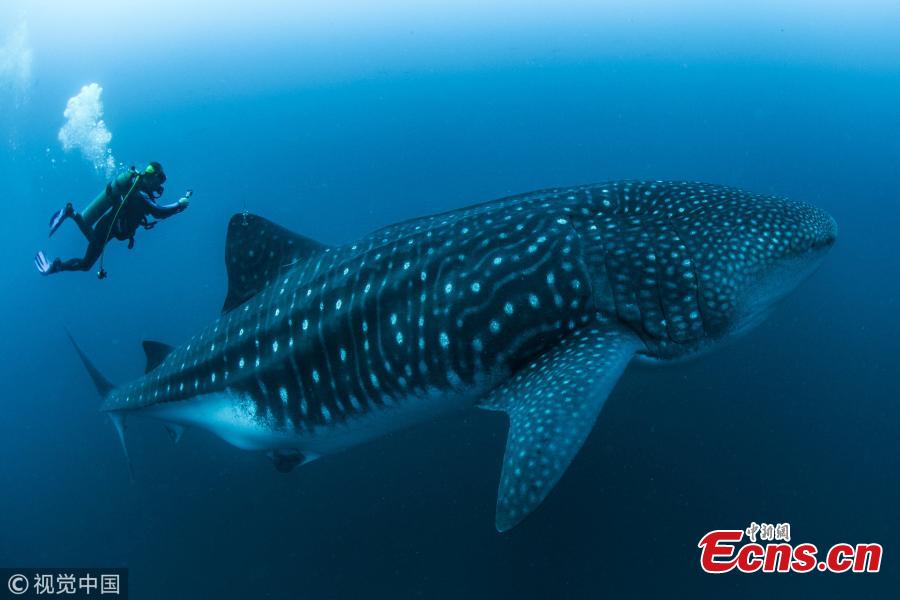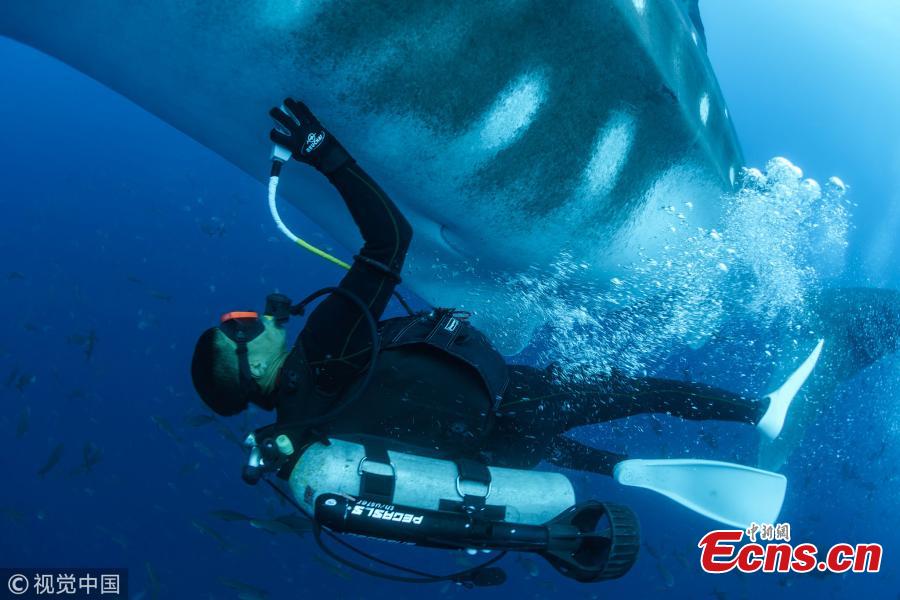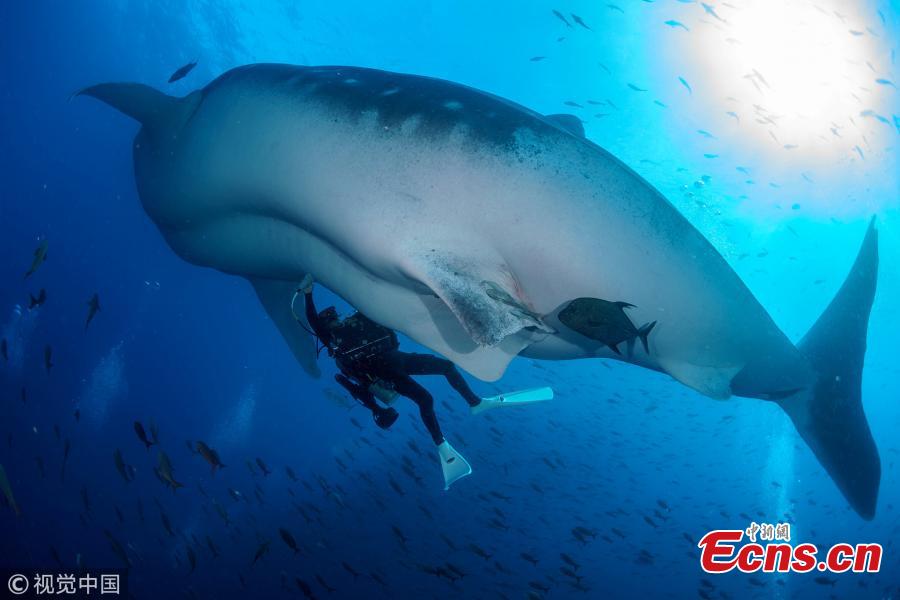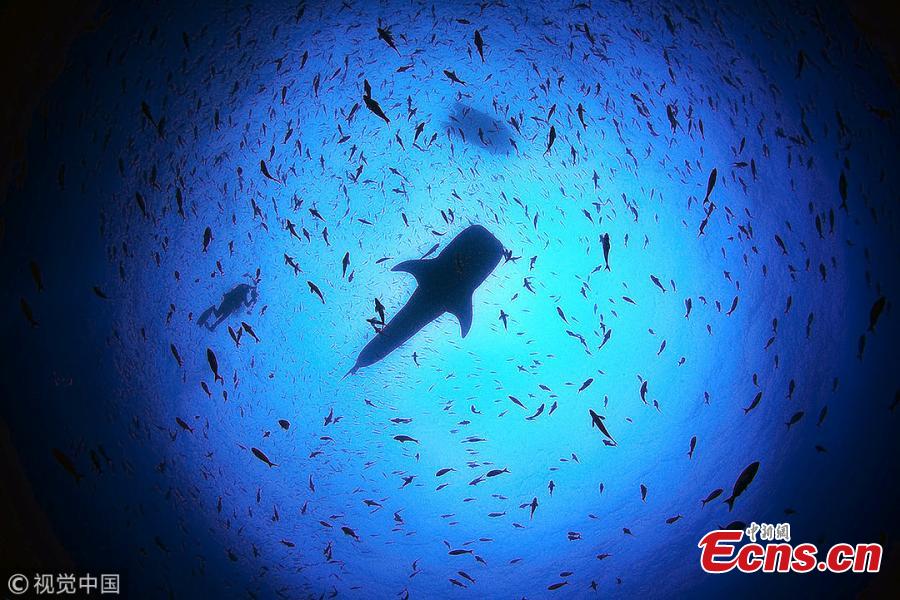
It's the biggest fish in the sea, often found roaming in warm waters around the globe with its huge mouth agape in search of dinner. Yet despite its hulking appearance, the whale shark is actually surprisingly docile. It's thanks to this docile nature that scientists in the Galapagos have been able to complete ultrasounds and take blood samples from the shark for the first time. The incredible results allowed them to see and identify reproductive organs, such as the ovaries, and even developing follicles. Researchers say the study could help unlock the mystery of breeding in the world's largest sharks.(Photo/VCG)

It's the biggest fish in the sea, often found roaming in warm waters around the globe with its huge mouth agape in search of dinner. Yet despite its hulking appearance, the whale shark is actually surprisingly docile. It's thanks to this docile nature that scientists in the Galapagos have been able to complete ultrasounds and take blood samples from the shark for the first time. The incredible results allowed them to see and identify reproductive organs, such as the ovaries, and even developing follicles. Researchers say the study could help unlock the mystery of breeding in the world's largest sharks.(Photo/VCG)

It's the biggest fish in the sea, often found roaming in warm waters around the globe with its huge mouth agape in search of dinner. Yet despite its hulking appearance, the whale shark is actually surprisingly docile. It's thanks to this docile nature that scientists in the Galapagos have been able to complete ultrasounds and take blood samples from the shark for the first time. The incredible results allowed them to see and identify reproductive organs, such as the ovaries, and even developing follicles. Researchers say the study could help unlock the mystery of breeding in the world's largest sharks.(Photo/VCG)

It's the biggest fish in the sea, often found roaming in warm waters around the globe with its huge mouth agape in search of dinner. Yet despite its hulking appearance, the whale shark is actually surprisingly docile. It's thanks to this docile nature that scientists in the Galapagos have been able to complete ultrasounds and take blood samples from the shark for the first time. The incredible results allowed them to see and identify reproductive organs, such as the ovaries, and even developing follicles. Researchers say the study could help unlock the mystery of breeding in the world's largest sharks.(Photo/VCG)























